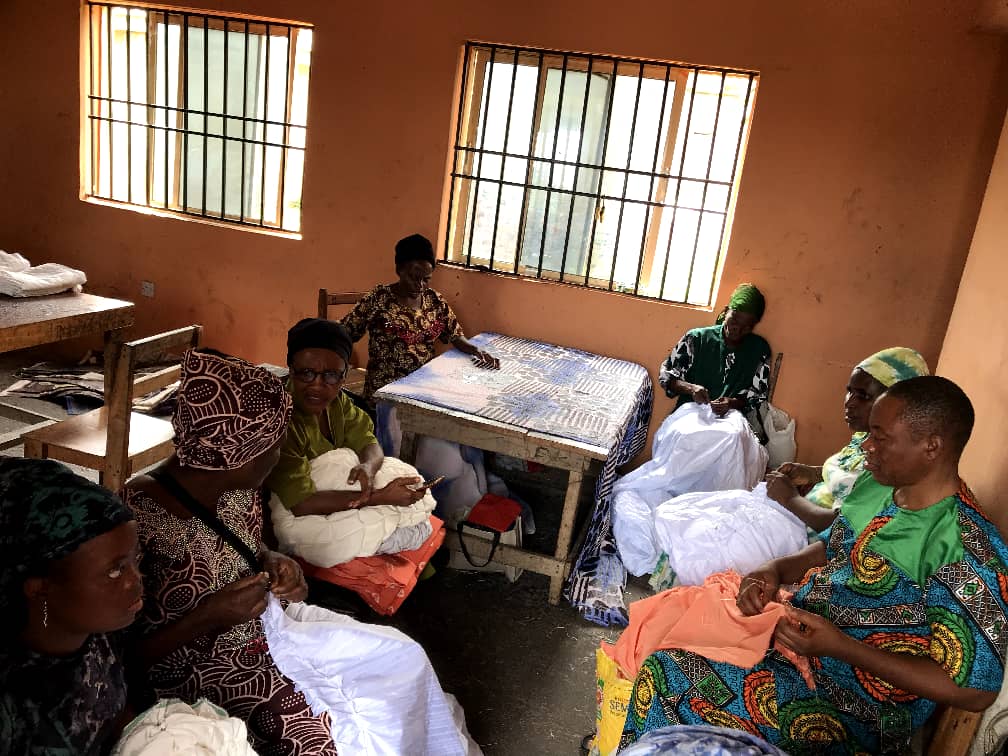NIPRD advocates use of artificial intelligence to boost healthcare delivery
[ad_1]
The National Institute for Pharmaceutical Research and Development(NIPRD) has called on critical stakeholders in Nigeria’s health sector to consider using Artificial Intelligence to enhance healthcare delivery in the country.
The Director General of NIPRD, Dr. Obi Adigwe, made the call while presenting a paper at the 4th Annual Scientific Conference of the Nigerian Academy of Science (NAS), with the theme: Innovations in Science and Technology for Attainment of Sustainable Development Goals (SDGs) in Nigeria, in Abuja.
The DG also disclosed that his institute had implemented strategies to ensure that scientists, policymakers, and other stakeholders adopt Artificial Intelligence (AI) and Machine Learning (ML) in conceptualising and implementing healthcare delivery reforms.
Adigwe explained that AI could improve opportunities and create more efficiency by mimicking human intelligence through computer-manipulated algorithmic exploration of contextual databases.
He noted that the NIPRD’s Artificial Intelligence Laboratory would be capacitated to enable interventions in patient diagnosis.
This, according to him, will consequently reduce pressure on physicians by working through vast quantities of information to deliver higher-quality patient care at reduced costs.
He further explained that the NIPRD’s Artificial Intelligence Laboratory would support the development of interventions that enhance all healthcare workflow and practice, including workflow optimization, support for interpretation tasks, quality and safety, and operational efficiency.
“Introducing Artificial Intelligence interventions for centralized medical record database will unlock potential value for the healthcare ecosystem by providing up-to-date, accurate and complete information for more coordinated and efficient patient care.
“Similarly, the automation of other mundane and repetitive tasks in the healthcare ecosystem will free healthcare professionals to tackle more complex problems.
“This is especially pertinent in Nigeria, given the low professional-to-patient ratio, across all relevant disciplines,” Adigwe stressed.
The NIPRD Director General, however, argued that following the pandemic and ahead of the full implementation of the AfCFTA, Artificial Intelligence represents the most effective tool for harnessing God-given resources to emerge as the continental hub for drug and phytomedicines’ research, development, and production.
Adigwe further illustrated this by presenting AI for Phytomedicines’ Mapping, where emergent and existing plants and herbal products can be identified, categorized, and matched with characteristics of conditions and diseases in a more expeditious and resource-efficient manner.
He gave the example of how NIPRD, using its rudimentary AI competencies, emerged as the first in the world to predict the utility of Andrographis paniculata for COVID-19.
It would be recalled that in the heat of the COVID-19 pandemic, the President of Africa’s foremost Academy, Professor Ekanem Ikpi Braide, led a high-powered team of Scientists and Policymakers to undertake a facility tour of NIPRD.
During the engagement, both parties committed to initiating innovative contextual projects that promote the development and advancement of science, technology, and innovation (STI) not just in Nigeria but across the continent.
In addition to unveiling the ongoing Multi-Million Dollar Purpose Built AI&ML Innovation and Incubation Facility, focused on resource-efficient phytomedicine and drug discovery, Adigwe revealed other areas where synergies could be harnessed by leveraging the Academy’s immense human capacity.
Fellows of the Academy who reacted to the presentation commended NIPRD’s pro-collaboration ethos, which has seen a recent upsurge in partnership and cooperation with many critical Agencies and Development Partners.
Experts in the Healthcare sector also noted that a partnership between NIPRD and Africa’s foremost Academy to catalyse health access through Artificial Intelligence was a step in the right direction.
[ad_2]














Post Comment